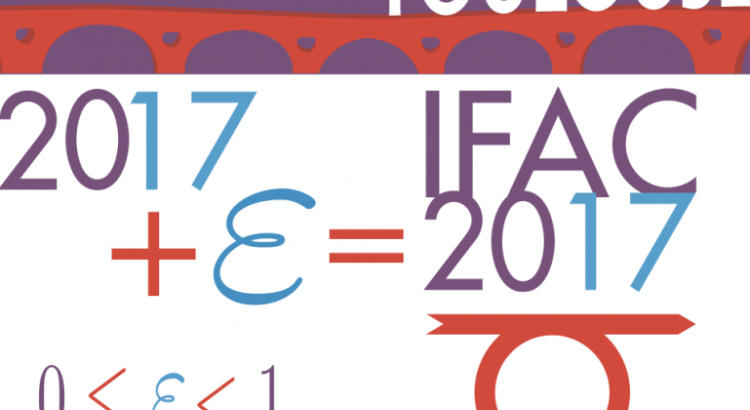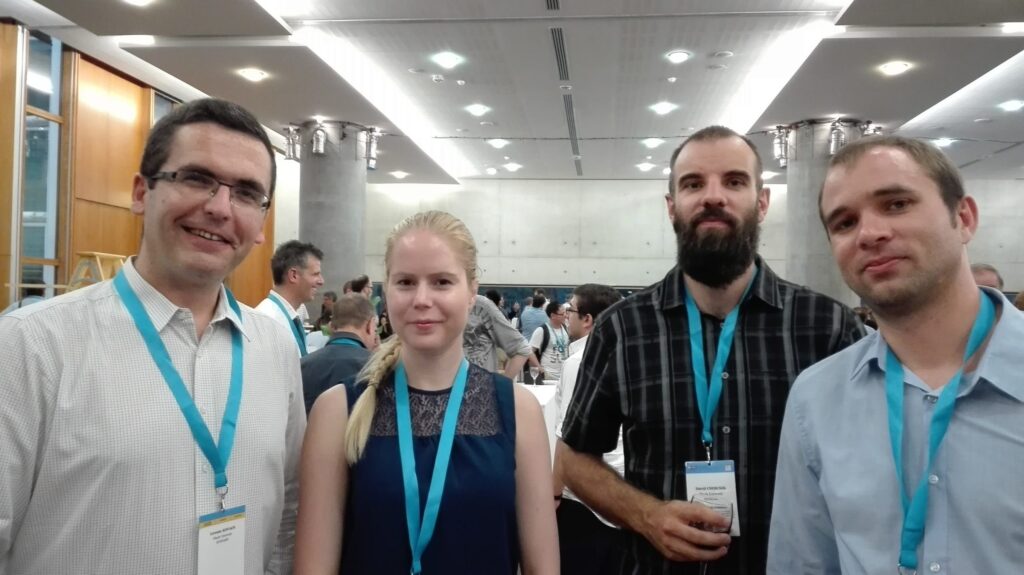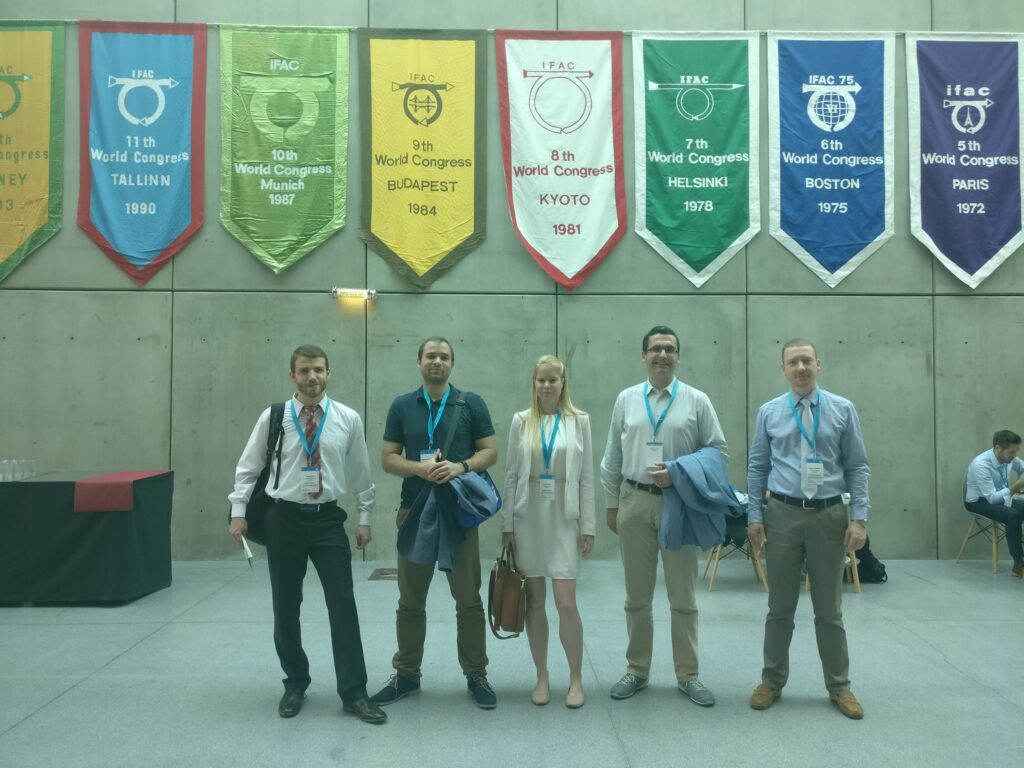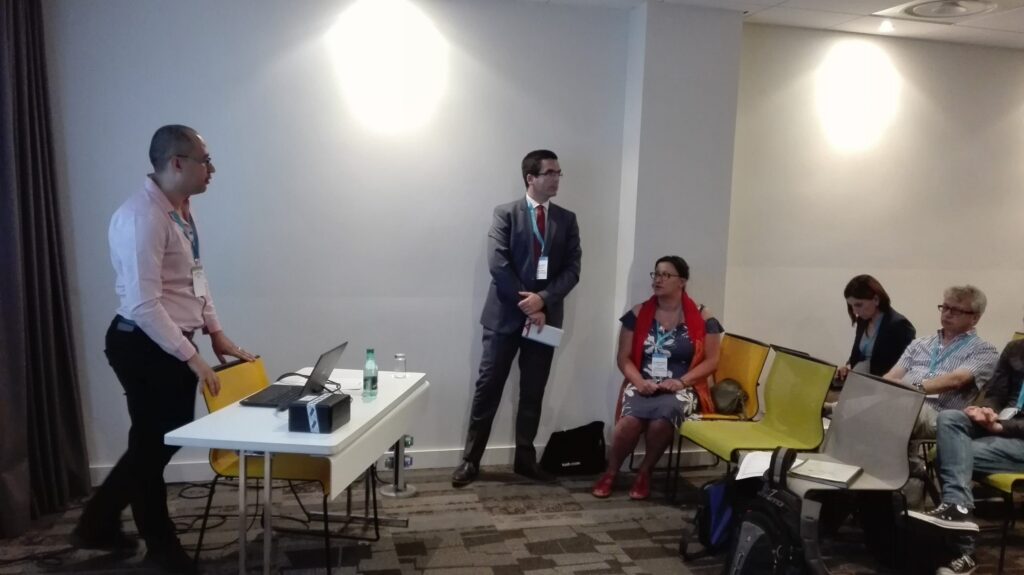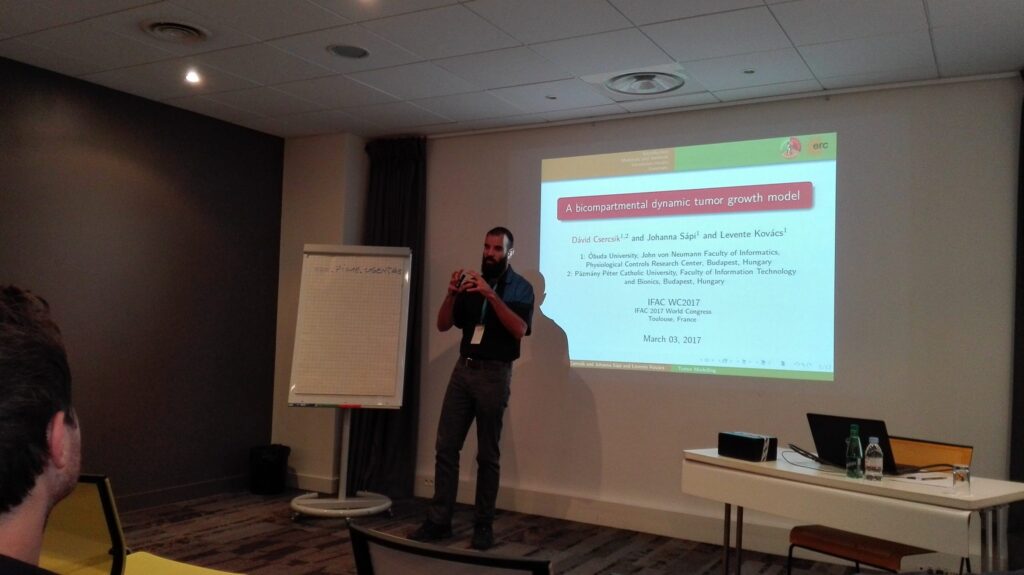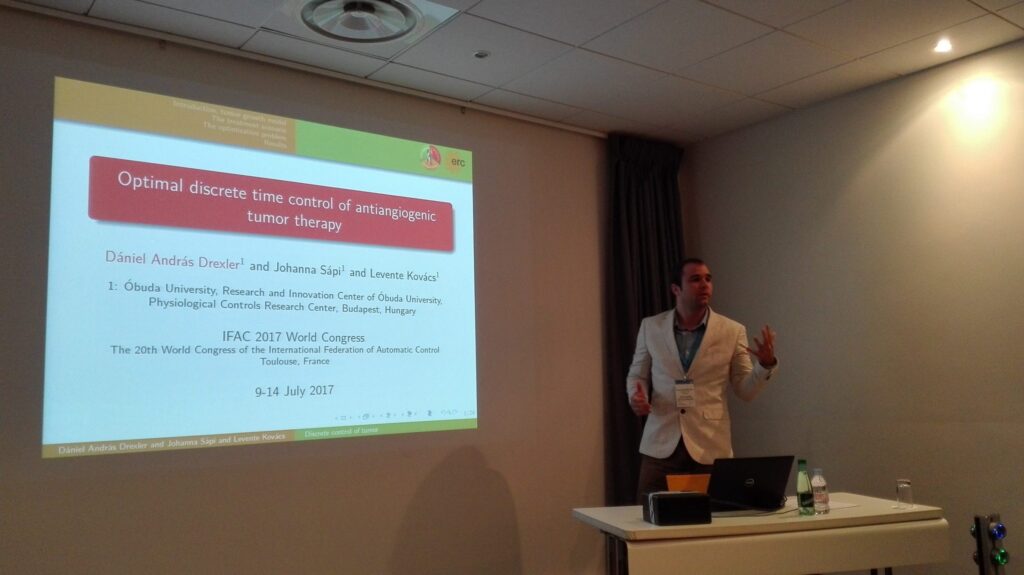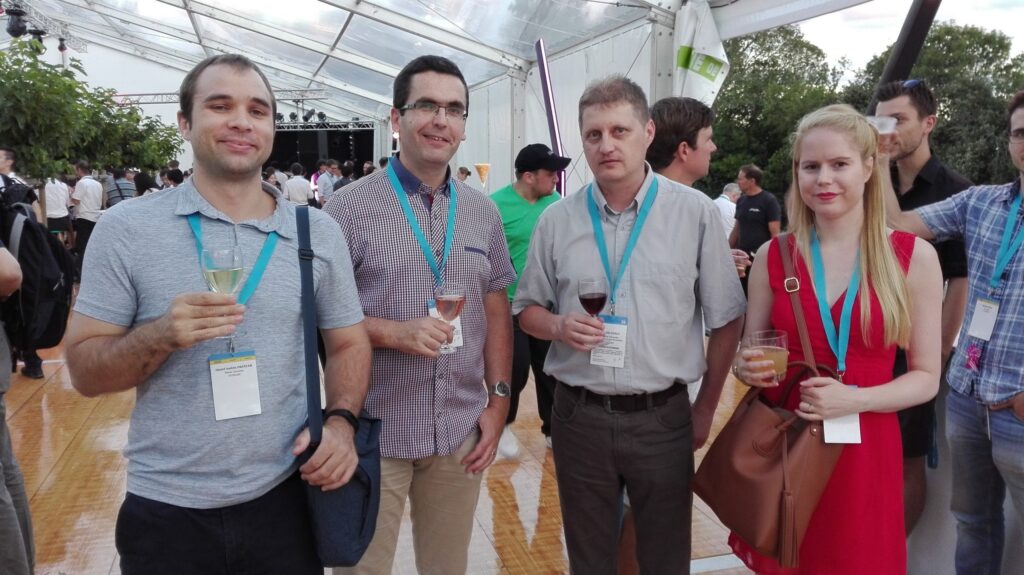From 9 to 14 July 2017, the International Federation for Automatic Control (IFAC) held its triennial World Congress in Toulouse, France, the world’s largest and most prestigious international engineering conference.
The 2,724 contributions accepted (the total number of contributions was 4,267, an acceptance rate of 64%) came from 82 countries around the world. Hungary was represented by 33 researchers, 6 of them from the University of Óbuda (!), representing the EKIK Centre for Physiological Control (PhysCon) and the Antal Bejczy Centre for Intelligent Robotics (BARK).
Head of the Centre for Physiological Controls and ERC Principal Investigator Prof. Dr. habil. Levente Kovacs, with a young professor from the University of Ghana, Prof. Dr. Clara Ionescu (soon to become Honorary Professor at the University of Óbuda), organized a full Open Invited Track (OIT, one of the 76 OITs of the conference) in the IFAC Technical Committee, entitled 8.2. Validation and data-driven modelling in biomedicine”. The OIT took place from 13-14 July 2017 and included 18 papers, 16 invited and two invited sessions, and an interactive session. PhysCon was represented by Dr. Johanna Sápi and Dr. A. Dániel Drexler, and by Dr. Dávid Csercsik, researcher and head of the group, Prof. Dr. habil. Levente Kovács, presenting 3 papers from the only H2020 ERC grant of the University of Óbuda, entitled Tamed Cancer.
BARK organised an invited session on “Tensor Methods for Modeling and Control” on 11 July 2017, with 6 papers from 3 countries, and presented 2 papers. BARK was represented by its young associate professor Dr. Péter Galambos and PhD student József Kuti.
For more information, visit https://www.ifac2017.org.
